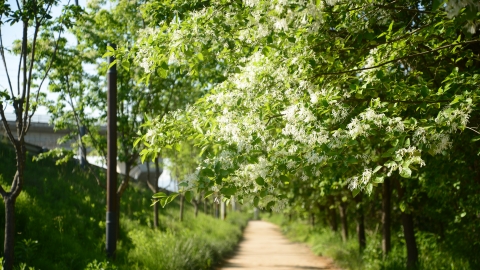Located on the banks of the sacred Ganges River, the city of Kannauj in Uttar Pradesh has been known for centuries as India's "perfume capital." The traditional techniques of essential oil production are considered a heritage of the people of Kannauj. According to locals, only perfumes refined using traditional methods retain their fragrance for a long time and are completely harmless to health. This is what makes the floral essential oils, or "attar," from this region completely different from all the synthetic perfumes produced today.
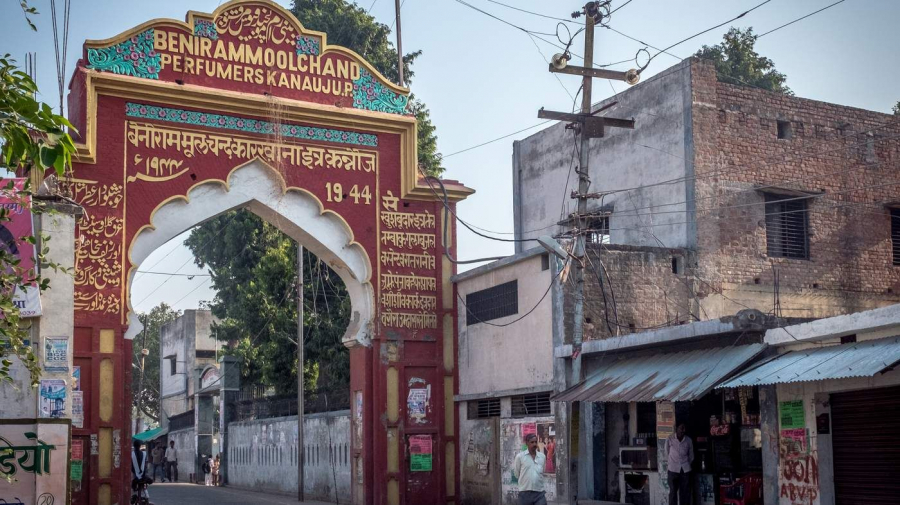
Besides its distinctive and intense fragrance, "attar" is also renowned for the meticulous investment of time and effort in each distillation stage. For example, in the production of rose essential oil, it takes 4 tons of fresh roses to extract just 1 kg of pure rose essential oil.
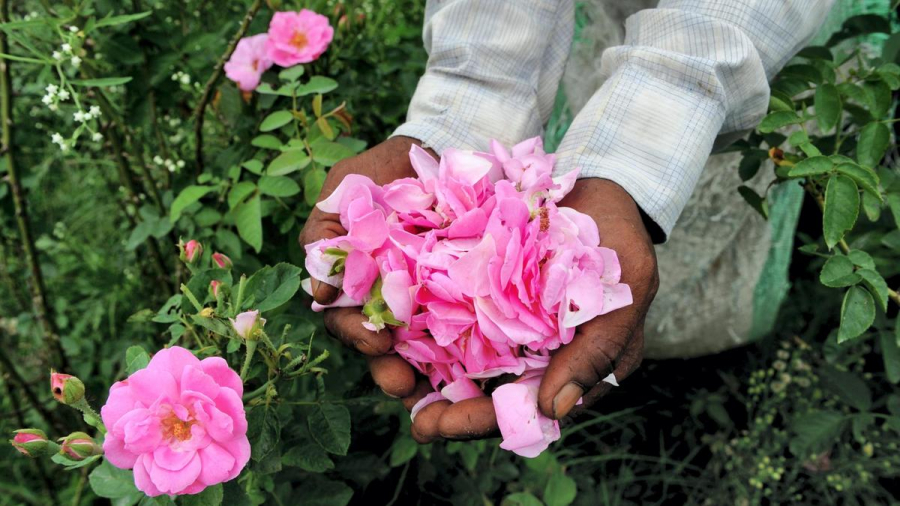
Even before dawn breaks, workers are busy hand-picking each damask rose, placing them in large sacks, and transporting them directly to the distillation plant for distillation that same day.
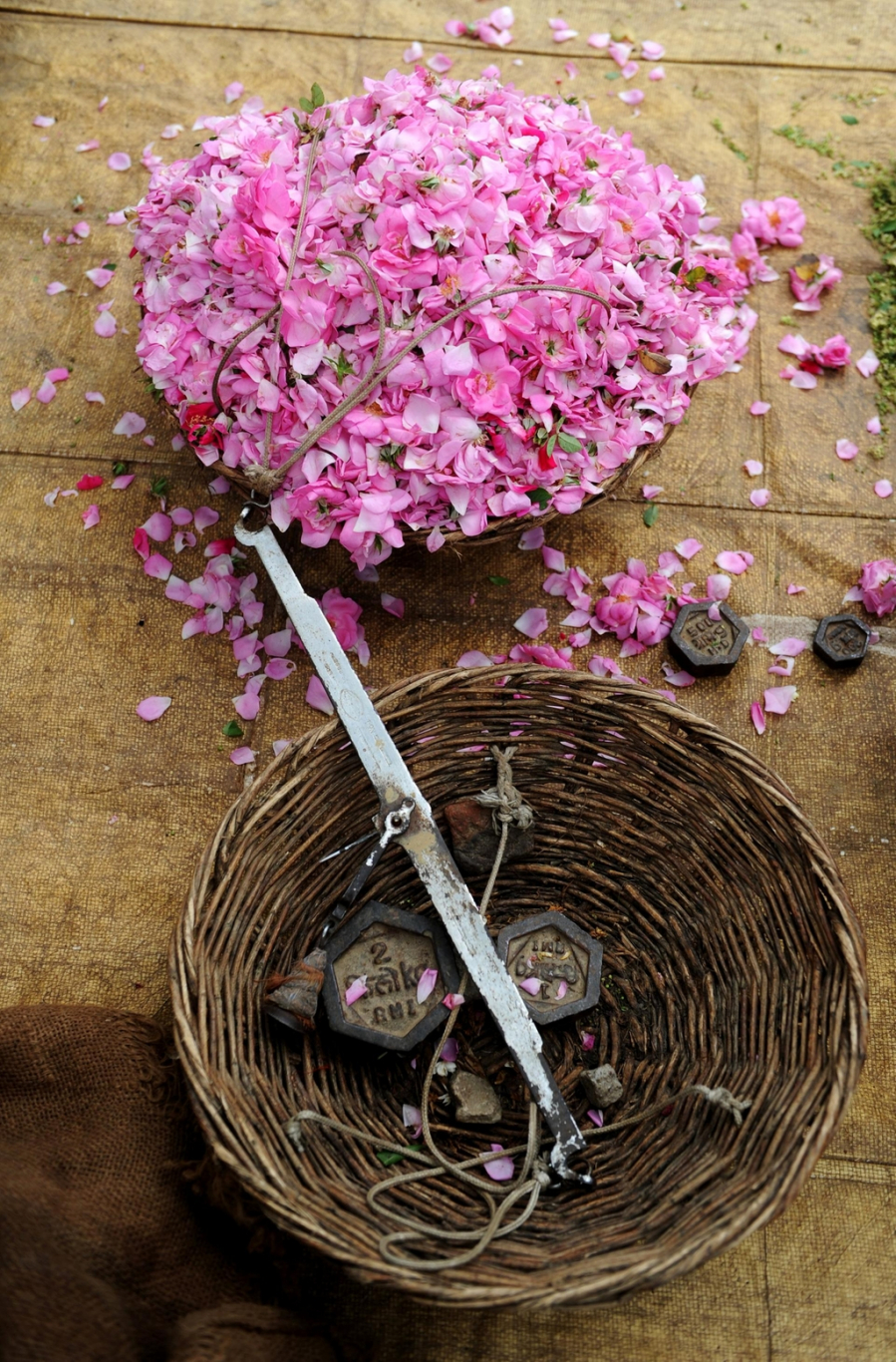
At the workshop, they pour roses into large copper pots with a little cold water and then boil them over a fire for 4-6 hours continuously. The hot steam causes the flowers to release their essential oils, which then condense and flow into a container through a bamboo tube. Typically, this container contains sandalwood oil, which acts as a solvent for the attar. Besides roses, jasmine and henna are also used, but the most popular and expensive fragrance remains the delicate, sweet scent of rose petals.
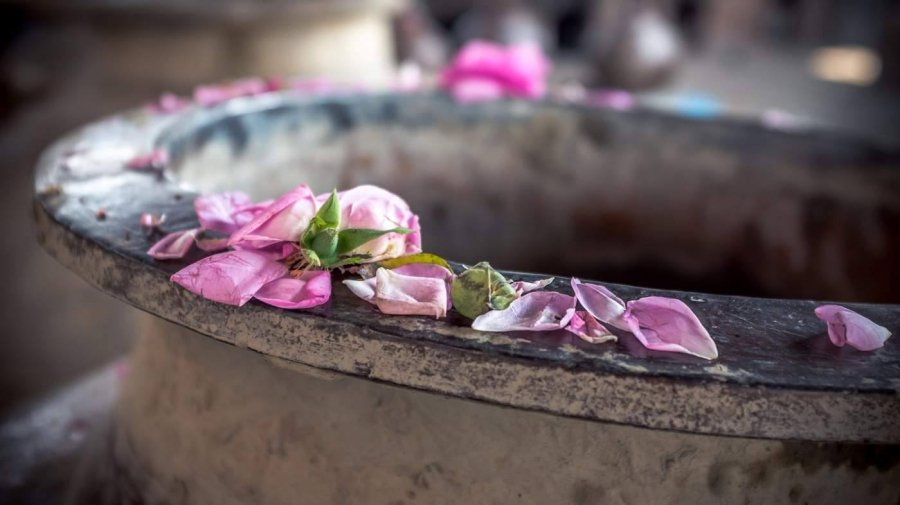
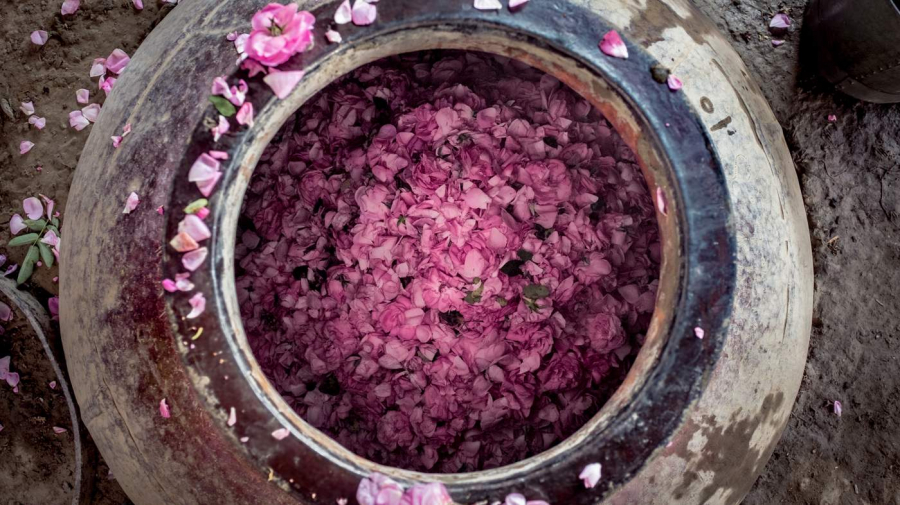
Making attar is a laborious craft, requiring not only experience but also patience and a passion for the work. Overheating or underheating the copper pot can significantly affect the aroma of the essential oil. Because of the entirely manual and elaborate processing method, attar essential oil is quite expensive. Another reason is that sandalwood essential oil is becoming increasingly scarce due to rampant deforestation, which has led the Indian government to tighten regulations and ban sandalwood harvesting, thus driving the price of this wood to exorbitant levels.
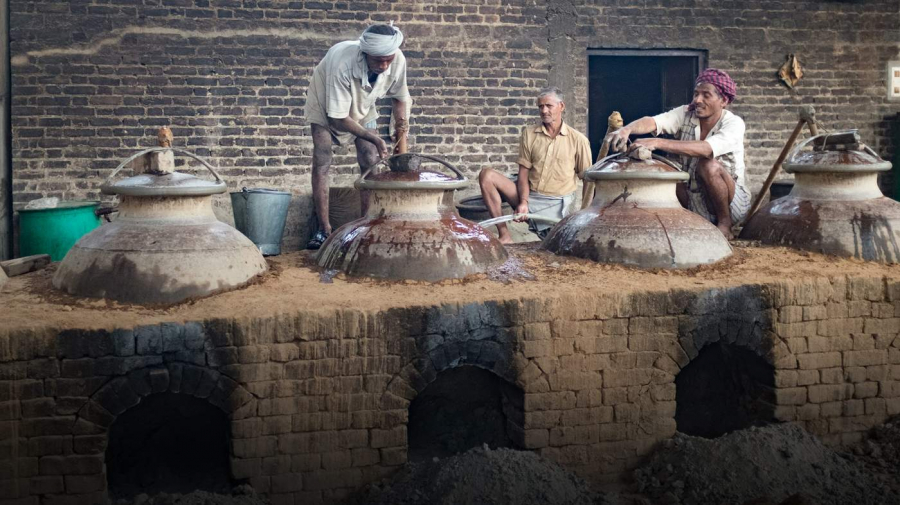
Making attar is a laborious craft, requiring not only experience but also patience and a passion for the work.
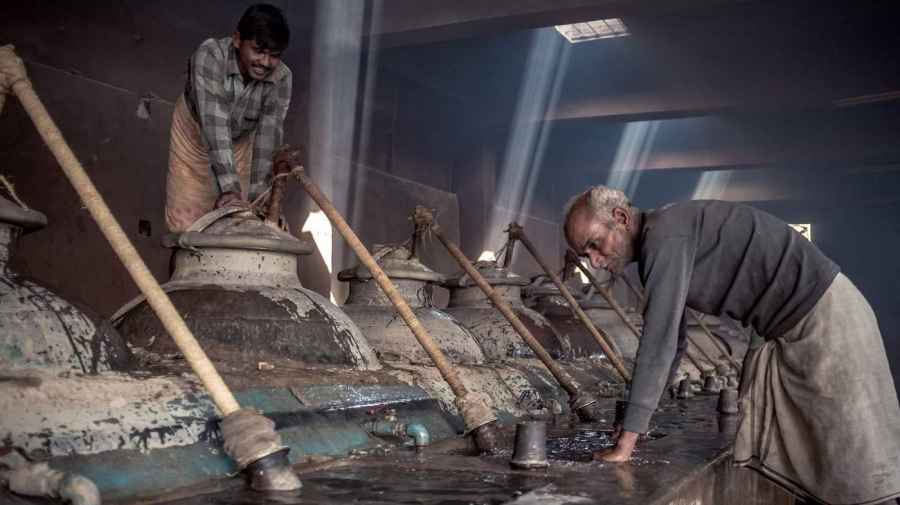
One of Kannauj's most unique products is "ruh al gulab"—an essence considered the "soul of roses." Ruh al gulab uses only roses as its sole ingredient, without any additives, and is produced by repeatedly distilling rose essential oil to increase its concentration. To produce 1 kg of ruh al gulab, factories need twice the amount of roses, approximately 8 tons. The wholesale price of 1 kg of ruh al gulab is around $18,000. Because of its completely natural composition, these essential oils can be applied directly to the skin without causing irritation, and their natural fragrance lingers on the body for a long time.
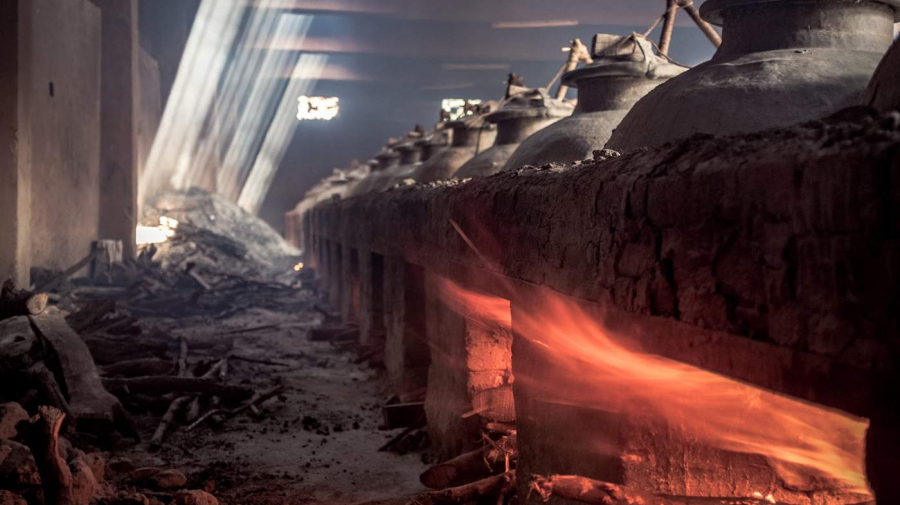
One of the world's largest markets for essential oils is the Middle East, with its wealthy, affluent customers. In 2014, it was estimated that an Arab consumer could spend up to $700 (approximately 16 million VND) per month on attar alone. Attar, or ruh al gulab, is highly valued by Muslims in both India and the Middle East.
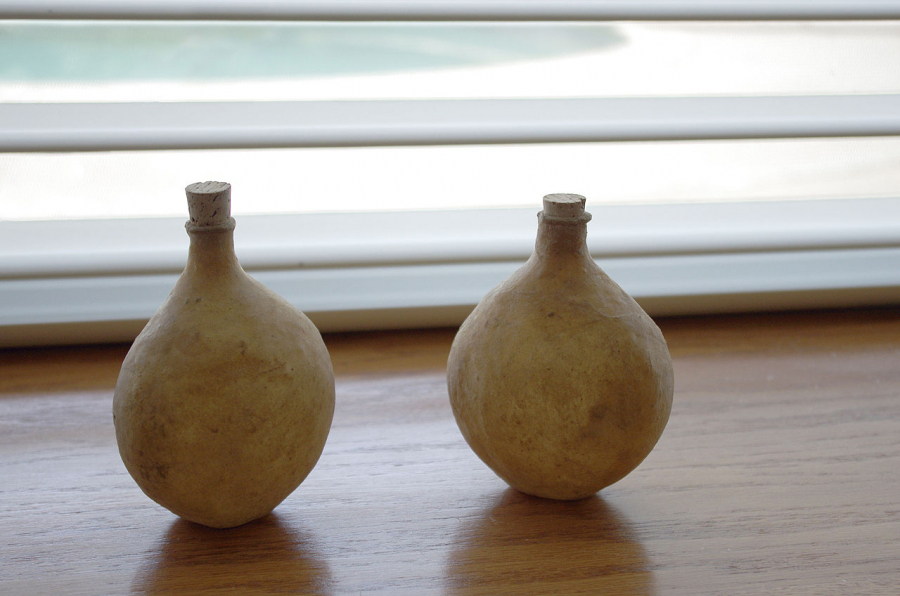
The floral essential oils are stored in camelskin jars.
Approximately 20 million people in Kannauj depend directly or indirectly on the essential oil industry for their livelihoods. While there remains a steady stream of customers, those involved in the traditional perfume distillation industry worry about the gradual decline and disappearance of their craft. Their livelihoods are threatened by the influx of chemically-based, industrial perfumes and other artificial fragrances, making traditional perfumes increasingly unpopular. About 20 years ago, there were as many as 700 distilleries in Kannauj, but today that number has dwindled to fewer than 100.
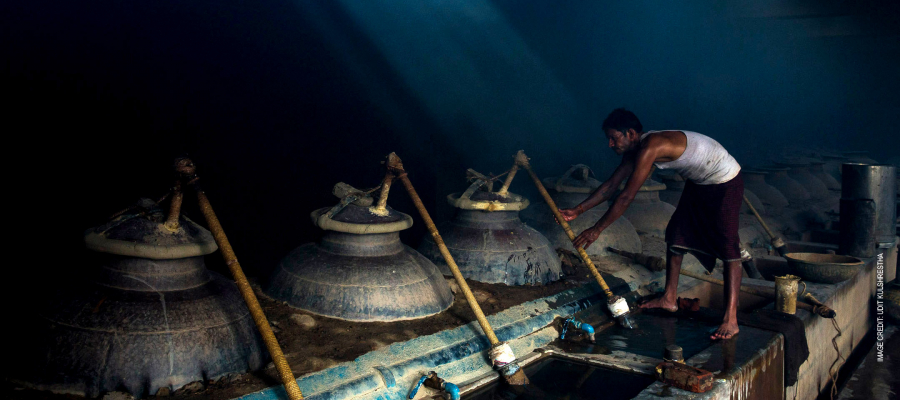
Ousman, a veteran essential oil producer in Kannauj, still believes that no machine can replace skilled hands and traditional distillation methods to produce superior fragrant essences: "The difference between natural perfumes and synthetic fragrances is like the difference between microwave-cooked food and wood-fired food."
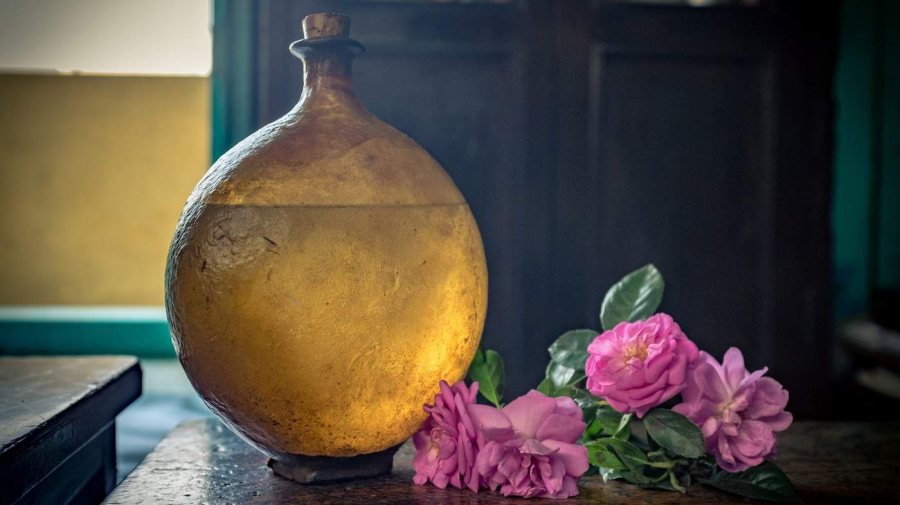

 VI
VI EN
EN



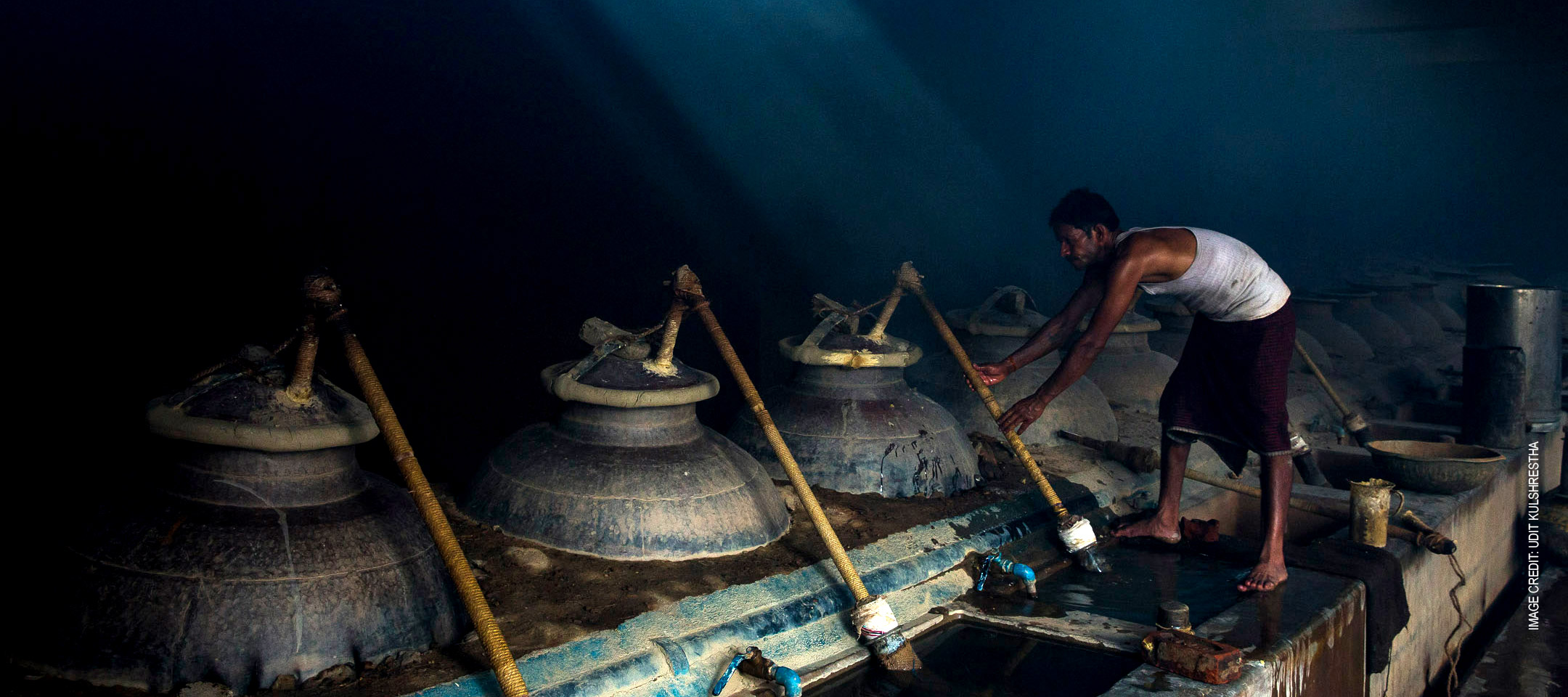












(Copy).jpg.jpg)







